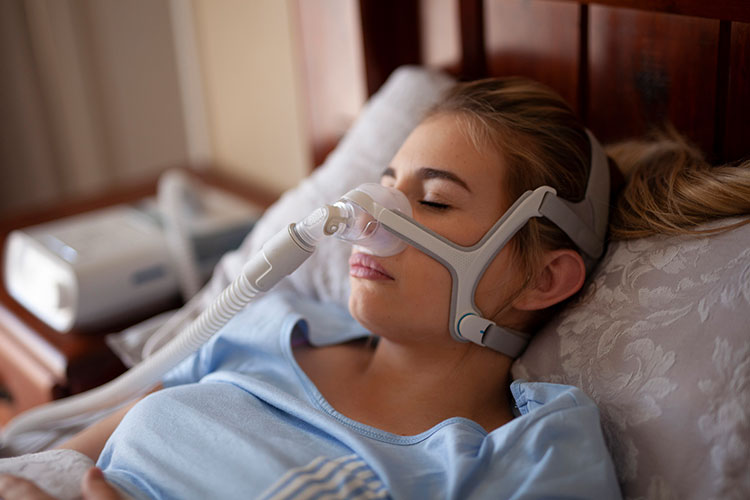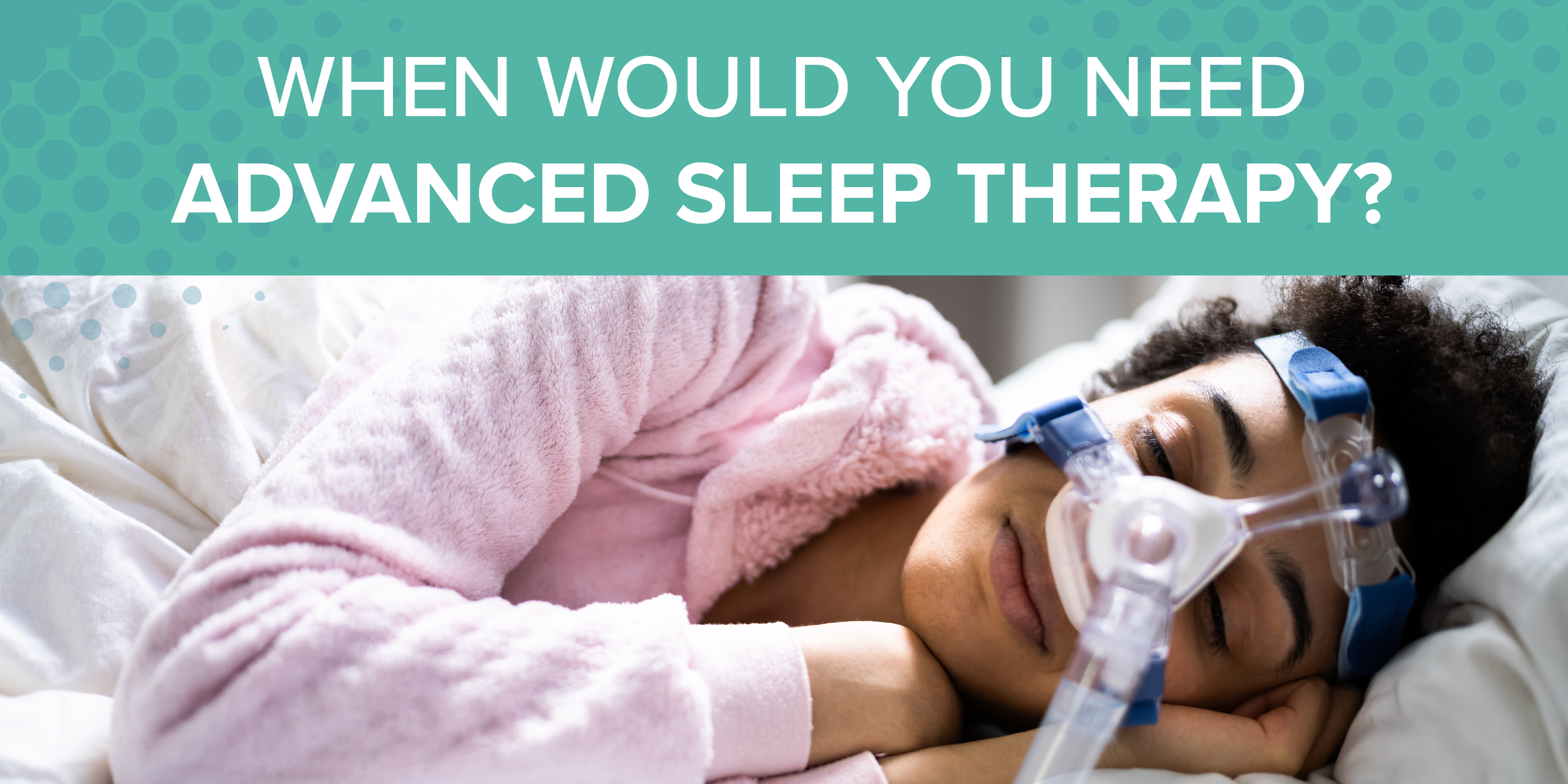Reliable Therapy Solutions for Managing Sleep Disorders and Enhancing Restful Sleep
In the realm of healthcare, the management of sleep conditions and the pursuit for relaxed sleep are pivotal parts of general wellness. Effective treatment services offer a diverse technique to tackle these obstacles, varying from cognitive behavioral treatments to holistic practices that advertise relaxation and mindfulness. The expedition of different methods, including the combination of medication and light therapy, opens up a realm of possibilities in the quest of far better sleep quality. As we navigate the intricate landscape of sleep problems and seek to boost our sleep experience, a much deeper understanding of these treatment services might hold the key to opening an extra refreshing and fulfilling restorative trip.
Cognitive Behavior Treatment for Sleep Problems (CBT-I)
Cognitive Behavioral Therapy for Sleeplessness (CBT-I) is a structured, evidence-based treatment strategy that concentrates on addressing the hidden factors adding to sleep disturbances. This kind of therapy intends to customize habits and ideas that worsen sleeping disorders, inevitably advertising healthy sleep patterns. CBT-I generally involves several key components, including cognitive treatment, rest constraint, stimulation control, and rest hygiene education.
Cognitive therapy helps individuals identify and change unfavorable idea patterns and ideas concerning sleep that may be preventing their capacity to drop or remain asleep. Sleep restriction includes restricting the amount of time spent in bed to match the person's actual sleep period, thus increasing rest effectiveness (insomnia counseling). Stimulation control methods help develop a strong organization between the bed and sleep by urging individuals to go to bed just when drowsy and to prevent participating in stimulating tasks in bed
Additionally, rest health education concentrates on establishing healthy rest routines, such as preserving a regular rest timetable, creating a relaxing going to bed regimen, and optimizing the rest environment. By resolving these variables adequately, CBT-I offers an effective non-pharmacological intervention for managing sleeplessness and improving total sleep high quality.
Sleep Health Practices
Having actually developed the structure of cognitive restructuring and behavioral modifications in resolving sleep problems through Cognitive Behavior modification for Sleeping Disorders (CBT-I), the focus currently moves towards discovering important Sleep Hygiene Practices for preserving optimum rest quality and overall wellness.
Rest health techniques encompass a series of habits and ecological elements that can significantly influence one's capability to drop off to sleep and stay asleep throughout the night. Constant rest and wake times, developing a relaxing bedtime routine, and optimizing the rest environment by maintaining it dark, peaceful, and cool are critical elements of excellent rest hygiene. Restricting direct exposure to displays prior to going to bed, staying clear of energizers like high levels of caffeine near going to bed, and participating in regular physical activity throughout the day can likewise promote better sleep high quality.
Moreover, practicing leisure techniques such as deep breathing workouts or reflection before bed can aid soothe the mind and prepare the body for sleep. By including these sleep hygiene methods into one's daily regimen, individuals can develop a healthy rest pattern that supports restful sleep and total health.
Relaxation Strategies and Mindfulness
Implementing relaxation methods and mindfulness methods can play a crucial duty in fostering a sense of calmness and promoting high quality rest. In addition, led imagery can help move individuals to a relaxed place in their minds, aiding in anxiety decrease and improving rest quality.
By incorporating these techniques right into a bedtime routine, people can indicate to their bodies that it is time to prepare and relax for sleep. Overall, incorporating relaxation techniques and mindfulness practices can dramatically add to managing rest conditions and enhancing total sleep quality.

Medicine Options for Rest Disorders
After discovering relaxation techniques and mindfulness methods as non-pharmacological treatments for improving sleep high quality, it is vital to think about rem parasomnia medicine options for individuals with rest conditions. In instances where way of life adjustments and therapy do not provide enough relief, medication can be a useful tool in managing sleep disruptions.
Commonly prescribed medications for sleep disorders include benzodiazepines, non-benzodiazepine hypnotics, antidepressants, and melatonin receptor agonists. Benzodiazepines, such as diazepam, are sedatives that can aid generate sleep, but they are generally advised for short-term usage as a result of the danger of dependancy. Non-benzodiazepine hypnotics like zolpidem are additionally made use of to deal with insomnia and have a reduced risk of dependancy contrasted to benzodiazepines. Antidepressants, such as trazodone, can be valuable for people with co-occurring anxiety and sleep disruptions. Melatonin receptor agonists, like ramelteon, target the body's natural sleep-wake cycle and can be useful for regulating rest patterns.
It is vital for individuals to speak with a medical care company to identify one of the most ideal medicine option based upon their particular rest disorder and case history.
Light Treatment for Circadian Rhythm Law
Light therapy, additionally referred to as phototherapy, is a non-invasive treatment approach a fantastic read utilized to manage body clocks and improve sleep-wake cycles. This treatment entails exposure to bright light that mimics natural sunshine, which aids to reset the body's biological rhythm. By subjecting people to details wavelengths of light, normally in the early morning or night relying on the desired impact, light treatment can properly adjust the circadian rhythm to promote wakefulness during the day and boost peaceful rest during the night.
Research study has actually revealed that light treatment can be particularly useful for individuals with circadian rhythm conditions, such as postponed rest stage disorder or jet lag. It can additionally be helpful for those experiencing seasonal depression (SAD), a kind of clinical depression that typically happens throughout the cold weather when natural light direct exposure is lowered. Light therapy is usually well-tolerated and can be utilized combined with other therapy approaches for sleep conditions to optimize end results and enhance total sleep top quality.
Final Thought
To conclude, reliable therapy remedies for handling rest problems and boosting peaceful rest consist of Cognitive Behavior modification for Sleep Problems (CBT-I), rest health techniques, leisure techniques and mindfulness, medication choices, and light therapy for circadian rhythm regulation. These strategies can aid people enhance their sleep top quality and general well-being. It is very important to speak with a doctor to identify one of the most appropriate approach for addressing rest issues.
As we browse the complex landscape of go to my site sleep problems and seek to boost our sleep experience, a much deeper understanding of these therapy options may hold the trick to unlocking a more relaxing and fulfilling corrective trip.
Sleep constraint includes restricting the amount of time invested in bed to match the individual's actual rest duration, therefore enhancing rest efficiency. Constant rest and wake times, producing a relaxing going to bed routine, and enhancing the rest environment by maintaining it dark, quiet, and cool are crucial components of good rest health. Light therapy is normally well-tolerated and can be used in conjunction with various other treatment approaches for sleep conditions to enhance outcomes and enhance total sleep quality.
